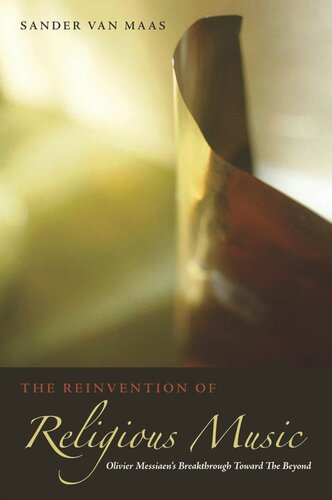

Most ebook files are in PDF format, so you can easily read them using various software such as Foxit Reader or directly on the Google Chrome browser.
Some ebook files are released by publishers in other formats such as .awz, .mobi, .epub, .fb2, etc. You may need to install specific software to read these formats on mobile/PC, such as Calibre.
Please read the tutorial at this link: https://ebookbell.com/faq
We offer FREE conversion to the popular formats you request; however, this may take some time. Therefore, right after payment, please email us, and we will try to provide the service as quickly as possible.
For some exceptional file formats or broken links (if any), please refrain from opening any disputes. Instead, email us first, and we will try to assist within a maximum of 6 hours.
EbookBell Team

4.7
86 reviewsOn the basis of a careful analysis of Olivier Messiaen's work, this book argues for a renewal of our thinking about religious music. Addressing his notion of a "hyper-religious" music of sounds and colors, it aims to show that Messiaen has broken new ground. His reinvention of religious music makes us again aware of the fact that religious music, if taken in its proper radical sense, belongs to the foremost of musical adventures.
The work of Olivier Messiaen is well known for its inclusion of religious themes and gestures. These alone, however, do not seem enough to account for the religious status of the work. Arguing for a "breakthrough toward the beyond" on the basis of the synaesthetic experience of music, Messiaen invites a confrontation with contemporary theologians and post-secular thinkers. How to account for a religious breakthrough that is produced by a work of art?
Starting from an analysis of his 1960s oratorio La Transfiguration de Notre-Seigneur Jésus-Christ, this book arranges a moderated dialogue between Messiaen and the music theology of Hans Urs von Balthasar, the phenomenology of revelation of Jean-Luc Marion, the rethinking of religion and technics in Jacques Derrida and Bernard Stiegler, and the Augustinian ruminations of Søren Kierkegaard and Jean-François Lyotard. Ultimately, this confrontation underscores the challenging yet deeply affirmative nature of Messiaen's music.